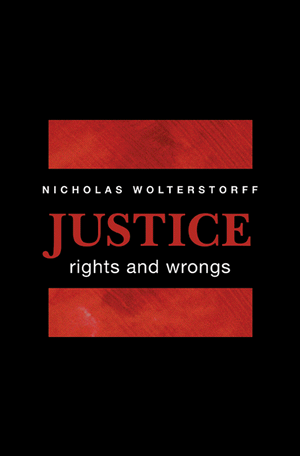
I just recently read the graphic novel Watchmen and saw the movie. (If gratuitous violence and sex offend you, stick to the book and avoid the movie. Apart from those excesses, the movie is actually a pretty faithful adaptation.) My wife encouraged me to write a blog post on it, which I’m assuming she did because she got tired of hearing me talk about it all the time and wanted me to redirect it to someone else. So this post is in part an effort to be a more considerate spouse.
(No spoilers anticipated.)
Watchmen rules. It's probably one of my all time favorite works of fiction. It’s a super(anti)hero comic book story about what the world would look like if people in real life traipsed around in costumes taking the law into their own hands. The book has a lot to say about politics, philosophy, ethics and psychology, and Alan Moore designed each of the six main characters to represent six different ways of viewing the world. I’d like to address one issue raised by two of those characters: Rorschach and The Comedian.
 Philosophically, the two characters are mirror opposites of each other. Rorschach believes in moral absolutes; the world is comprised of clear-cut distinctions between good and evil. His mask, an inkblot pattern that constantly changes shape, seems to symbolize this. Life is black and white, and while the boundaries between right and wrong continuously flow into and displace each other, blacks and whites absolutely never mix into greys. He is willing to operate as an illegal superhero, savagely torture people who have information he needs and kill evildoers in a variety of colorful ways, as long as it means achieving retributive justice in the end.
Philosophically, the two characters are mirror opposites of each other. Rorschach believes in moral absolutes; the world is comprised of clear-cut distinctions between good and evil. His mask, an inkblot pattern that constantly changes shape, seems to symbolize this. Life is black and white, and while the boundaries between right and wrong continuously flow into and displace each other, blacks and whites absolutely never mix into greys. He is willing to operate as an illegal superhero, savagely torture people who have information he needs and kill evildoers in a variety of colorful ways, as long as it means achieving retributive justice in the end.The Comedian, on the other hand, doesn’t believe in anything. As you can infer from his name, he thinks life is a joke. He is a superhero because it’s fun, he kills innocent people because he can, he sees no existential difference between the just and the unjust, and he’s a devoted crime fighter even though he thinks the efforts of superheroes are futile in effecting any real change.
What’s interesting is how similar they are when it comes to how they live. Both are merciless killers who will go greater lengths than other superheroes in violently suppressing enemies. They don’t get along well with others, but they do have considerable respect for each other. And they’re both sociopaths. This reminds me of the great lesson learned about the alliance between the Nazis and the Soviets in World War II: the extremes of two opposing ideologies end up having more in common with each other than with anyone in the middle. As Bryce is fond of pointing out, the political spectrum looks more like a horseshoe than a straight line.

I’m interested in the relationship between righteousness and laughter. To me they are like opposing forces: righteousness is very serious, heavy matter, and laughter is as light as air. Righteousness should ground laughter with meaning and laughter should teach righteousness to loosen up a bit. But one with out the other is insanity. Rorschach never laughs and The Comedian never uses “ought” language. They are both sociopaths because they each live out unmixed commitments to either righteousness or laughter.
It might seem counterintuitive, but a life of pure piety is deadly. John Caputo says in Against Ethics, “Piety unbroken by laughter spills blood. Excommunication, extermination, execution, exile, exclusion, extra ecclesia nulla salus est [There is no salvation outside the Church]: that is the outcome of pure piety and of preoccupation with saving powers.” (I will proclaim boldly, without caveat, that Against Ethics is the single most satisfying work of philosophy I have ever read.) We tend to forget that the Spanish Inquisition came out of a time of rekindled interest in Catholic spirituality and holiness, and that purifying Europe of foreign, contaminating elements flowed from the same urge to renew Christianity. It was concomitant with a golden age of Spanish spirituality (St. John of the Cross, St. Teresa of Avila). A similar kind of spiritual revival impelled the 12th century Crusaders. So Rorschach’s brutality is not a dismissible symptom of a pathological love of violence—it has its eye on justice itself.
Uninhibited laughter is no less disturbing. The Comedian’s freewheeling, carefree life of hedonistic laughter is the consummate expression of individual autonomy. No kind of external obligation hinders him—his rule of life is auto- (self) nomy (rule) in the strictest sense. Laughter is as light as air, but even the highest mountain can’t stop the wind; it’s frictionless. Balancing his point against purebred piety, Caputo says, “In certain situations free agency should be made to tremble. When agents produce patients, people who suffer, I want to let agency waver in insecurity, to let autonomy and spontaneity and creativity and freedom feel their own murderousness—instead of singing hymns to them”.
I wish there was some account of Jesus laughing in the gospels (I appreciate The Passion of the Christ, if for no other reason than that it showed Jesus making a joke). Even though laughter is not mentioned specifically, I think Jesus’ way of life embodied the right mixture of laughter and piety. He made fun of and publicly embarrassed the Pharisees for taking themselves so seriously, but he also stood in righteous silence before the sardonic laughter of the Roman guards. As for me, most days I can’t decide whether I should put on sackcloth or just laugh. Trying to live out both is a difficult balance to strike. Maybe that’s why there don’t seem to be any good Christian comedians out there.









